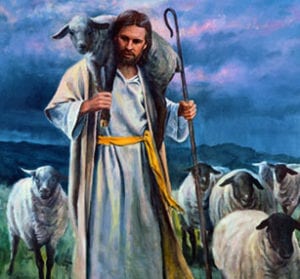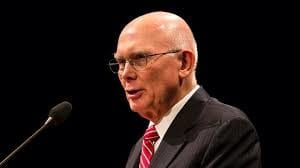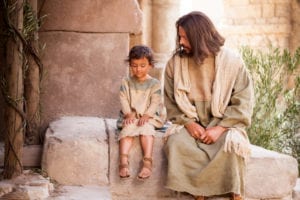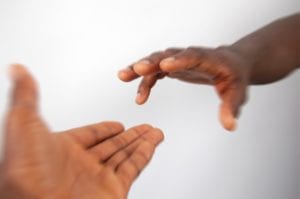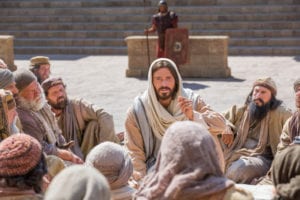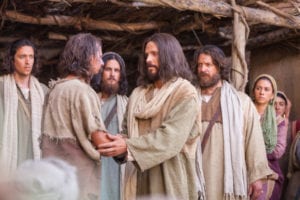This is a guest post from Debra Oaks Coe, who is a member of the Executive Committee of the Utah Commission for LGBT Suicide Awareness and Prevention and Lead of the Anti-Discrimination Committee for Mormon Women for Ethical Government.
“What is changing – and what needs to change – is to help Church members respond sensitively and thoughtfully where they encounter same-sex attraction in their own families, among other Church members, or elsewhere”. [1] Elder Dallin H. Oaks
The unprecedented rise in Utah’s youth suicide rate over the past decade has developed into an uncertain political issue as its underlying causes have been debated. Some have questioned what possible influence the Church has had, particularly in regards to suicides among individuals who are LGBT. While a no conclusive or singular cause has yet been identified, the Church has long and repeatedly urged Latter-day Saints to be more mindful, considerate, and inclusive as part of needed change.
Citing misunderstanding—including among Church members—of the Church’s positions on various issues related to same-sex attraction, Elder Oaks authored an Ensign article on the topic in 1995. In it, he quoted a letter he had received expressing serious concern that too often we talk about gay and lesbian members with “a real lack of the pure love of Christ” which “creates more depression and a tremendous amount of guilt, shame, and lack of self-worth.” The author asks for more sensitivity saying this “would surely help avoid suicides and schisms that are caused within families.” [2]
Elder Oaks then admonished Latter-day Saints regarding these concerns:
“These communications surely show the need for improvement in our communication… Each member of Christ’s church has a clear-cut doctrinal responsibility to show forth love and to extend help and understanding… All should understand that persons (and their family members) struggling with the burden of same-sex attraction are in special need of the love and encouragement that is a clear responsibility of Church members, who have signified by covenant their willingness “to bear one another’s burdens” (Mosiah 18:8) ‘and so fulfil the law of Christ’ (Gal. 6:2).” [3]
Over the next several years, the Church and its leaders made many statements affirming that their stand on traditional marriage should never, ever be used to justify unkindness or persecution toward the LGBT community or individuals. After confirmed reports from different parts of the US of violent acts along with suicides related to individuals being gay, the church issued a very clear statement in October 2010.
“We join our voice with others in unreserved condemnation of acts of cruelty or attempts to belittle or mock any group or individual that is different – whether those differences arise from race, religion, mental challenges, social status, sexual orientation or for any other reason. Such actions simply have no place in our society.
…Our parents, young adults, teens and children should… of all people, be especially sensitive to the vulnerable in society and be willing to speak out against bullying or intimidation whenever it occurs, including unkindness toward those who are attracted to others of the same sex. This is particularly so in our Latter-day Saint congregations. Each Latter-day Saint family and individual should carefully consider whether their attitudes and actions toward others properly reflect Jesus Christ’s second great commandment, to “Love One Another.” [4]
The Church began an extended effort to better understand the challenges members who are gay face, as well as the challenges their families face. It explored how to help members respond better.
In April 2012 General Conference, Elder Oaks delivered a talk titled “Protect the Children” In it, he encouraged members to be more mindful of how their words might adversely impact young people. He specifically mentioned those with same-sex attraction as being particularly vulnerable and their need of loving understanding.
Making a child or youth feel worthless, unloved, or unwanted can inflict serious and long-lasting injury on his or her emotional well-being and development. Young people struggling with any exceptional condition, including same-gender attraction, are particularly vulnerable and need loving understanding—not bullying or ostracism. With the help of the Lord, we can repent and change and be more loving and helpful to children – our own and those around us.[5]
In December of 2012, the Church published mormonsandgays.org. The new official Church website included interviews with three apostles, including Elder Oaks, Elder Christofferson, and Elder Cook. It encouraged understanding and prominently called for us to “love one another.” This website gave the quote from Elder Oaks, expressing the need for Church members to respond more sensitively and thoughtfully. It encouraged humility and stated that “Latter-day Saints recognize the enormous complexity of the matter. We simply don’t have all the answers.” [6]
On this website, Elder Cook reminded us that as a Church nobody should be more loving and compassionate.
. . .as a Church nobody should be more loving and compassionate. No family who has anybody who has a same-gender issue should exclude them from the family circle. They need to be part of the family circle. . . . We have a plan of salvation. And having children come into our lives is part of Heavenly Father’s plan. But let us be at the forefront in terms of expressing love, compassion, and outreach to those and let’s not have families exclude or be disrespectful of those who choose a different lifestyle as a result of their feelings about their own gender. . . . I feel very strongly about this… It’s a very important principle. [7]
The need for us to love and lift all of God’s children was emphasized by Elder Neil L. Anderson in April 2014 General Conference.
Of special concern to us should be those who struggle with same-sex attraction. It is a whirlwind of enormous velocity. . . . everyone, independent of his or her decisions and beliefs, deserves our kindness and consideration. The Savior taught us to love not only our friends but also those who disagree with us—and even those who repudiate us. He said: “For if ye love them which love you, what reward have ye? …And if ye salute your brethren only, what do ye more than others?” The Prophet Joseph Smith warned us to “beware of self-righteousness” and to enlarge our hearts toward all men and women until we feel “to take them upon our shoulders.” In the gospel of Jesus Christ, there is no place for ridicule, bullying, or bigotry.[8]
While speaking at a BYU devotional in September 2015, Elder Rasband encouraged the student body to reach out to all people just as the Savior did. He specifically talked about the need to reach out to those that are LGBT. Several days later he posted the following on his Facebook page:
Some of you wrote of the conflict that you’ve felt in showing #Fairness4All, especially with individuals who see life differently from you. You expressed worry that such friendships might betray your beliefs. I want to reiterate that the Savior is the perfect example of reaching out in love and support. His interest in others was always motivated by a pure love for them. Sometimes we approach relationships with the intent to change the other person. We follow our Savior best when we base our relationships on principles of love.[9] Emphasis added
In the BYU devotional Elder Rasband testified that as we reach out to others we would feel an increase in the Savior’s love for all people and that this powerful love would open doors and create meaningful friendships to be cherished throughout our lives. [10] It is important as disciples of Christ, to have a wide variety of friends.
In October 2016, the Church released an updated website now called mormonandgay.lds.org. The updated website continued to emphasize the need for change and members responding more sensitively and thoughtfully. It included a new video helping us understand the need to reach out to those that are marginalized. It reminded us that “the gospel of Jesus Christ does not marginalize people. People marginalize people and we have to fix that. We need to be sensitive.” [11] We need to love others as the Savior loves all of us and follow the example He set during His life on earth. We need to stand up when others speak or act in negative ways.
This new Church website, mormonandgay.lds.org, has a video of Elder Dallin H. Oaks titled “Love and the Law.” In it Elder Oaks states, “As Latter-day Saints, many of us, not all of us, but many of us, are inclined to insist on the law and do so in an unloving way…” In addressing conflict, Elder Oaks said, “The first thing I always suggest is keep loving them; in the end that is something you can always do.” He said that we should not start off our interactions by arguing and he went on to say:
The Savior commanded His followers to “Love one another as I have loved you.” So we look at how He loved us. He sacrificed Himself for us. He was concerned always with the individual. He had a wonderful outreach for people. I think those are all indicators of how we can love one another like He loved us. If we make Him our role model we should always be trying to reach out to include everyone. [12]
The principal causes of Utah’s deeply troubling youth suicide problem are still largely undetermined. This is mostly due to a lack of detailed data, which the Utah Department of Health is working to overcome.
The Church has published articles related to suicide prevention and published a new website on the topic. It continues to urge its members to be compassionate and inclusive of others and to be especially mindful of our youth, including LGBT people.
In April 2016, President Uchtdorf reminded us that condemning, ridiculing and shaming are wrong.
During the Savior’s ministry, the religious leaders of His day disapproved of Jesus spending time with people they had labeled “sinners.” Perhaps to them it looked like He was tolerating or even condoning sinful behavior. Perhaps they believed that the best way to help sinners repent was by condemning, ridiculing, and shaming them. . . What matters is that you are His child. And He loves you. He loves His children.[13]
Note that President Uchtdorf put the word “sinners” is in quote marks reminding us that we shouldn’t be labeling others, especially when it affects the way we treat them.
In December 2016, President Uchtdorf said:
To put it simply, having charity and caring for one another is not simply a good idea. It is not simply one more item in a seemingly infinite list of things we ought to consider doing. It is at the core of the gospel—an indispensable, essential, foundational element. Without this transformational work of caring for our fellowmen, the Church is but a facade of the organization God intends for His people. Without charity and compassion we are a mere shadow of who we are meant to be—both as individuals and as a Church…. No matter the outward appearance of our righteousness, if we look the other way when others are suffering, we cannot be justified. [14]
[1] Elder Dallin H. Oaks, Church News, “Church Updates Resources Addressing Same-Sex Attraction” Contributed by Camille West, October 25, 2016. See also www/mormonandgay.lds.org/articles/love-one-another-a-discussion-on-same-sex-attraction
[2] Elder Dallin H. Oaks, “Same-Gender Attraction” Ensign, October, 1995, p. 10
[3] Ibid
[4] Michael Otterson, “Church Reponds to HRC Petition: Statement on Same-Sex Attraction”, October 12, 2010 http://www.mormonnewsroom.org/article/church-mormon-responds-to-human-rights-campaign-petition-same-sex-attraction
[5] Dallin H. Oaks April 2012 General Conference, “Protect the Children” https://www.lds.org/general-conference/2012/10/protect-the-children?lang=eng#note10
[6] On original mormonsandgays.org main page. https://web.archive.org/web/20161025015242/http://mormonsandgays.org/
[7] Elder Quentin L. Cook, Church News, “Church Updates Resources Addressing Same-Sex Attraction” Contributed by Camille West, October 25, 2016. See also at https://mormonandgay.lds.org/videos?id=15209571875228076146#d.
[8] Elder Neil L. Andersen, “Spiritual Whirlwinds,” General Conference, April 2014
[9] Elder Ronald A. Rasband Facebook post Sept. 29, 2015
[10] Elder Ronald A. Rasband BYU devotional Sept. 15, 2015
[11] Sister Carol F. McConkie, First Counselor, Young Women General Presidency, “Lifting Others” video https://mormonandgay.lds.org/videos?id=9655787446538818627
[12] Elder Dallin H. Oaks, video “Love and the Law” https://mormonandgay.lds.org/videos?id=7254846371177561723
[13] President Uchtdorf General Conference April, 2016. “He Will Place You on His Shoulders and Carry You Home”
[14] President Uchtdorf Address to the Salt Lake City Inner City Mission, given December 4, 2015
The post LGBT Youth Suicides: What Needs to Change appeared first on FairMormon.
Continue reading at the original source →




